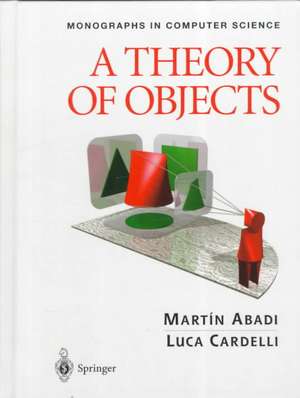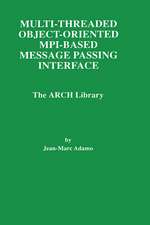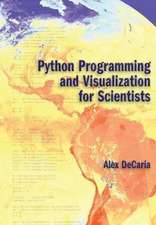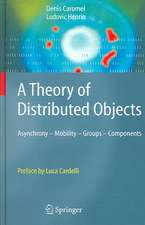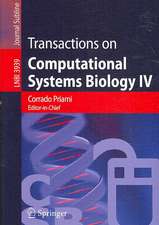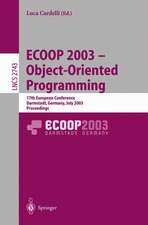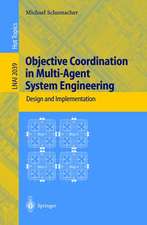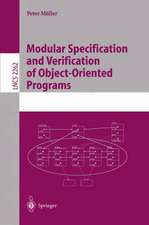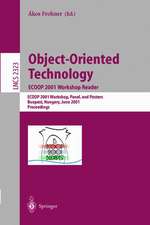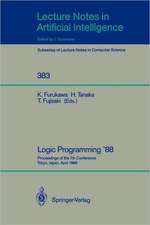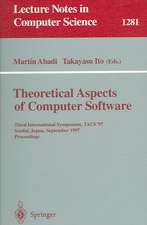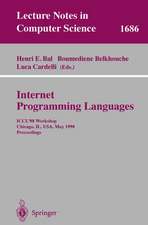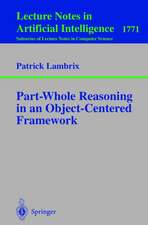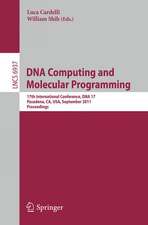A Theory of Objects: Monographs in Computer Science
Autor Martin Abadi, Luca Cardellien Limba Engleză Hardback – 9 aug 1996
| Toate formatele și edițiile | Preț | Express |
|---|---|---|
| Paperback (1) | 1448.33 lei 6-8 săpt. | |
| Springer – 5 sep 2012 | 1448.33 lei 6-8 săpt. | |
| Hardback (1) | 1452.94 lei 6-8 săpt. | |
| Springer – 9 aug 1996 | 1452.94 lei 6-8 săpt. |
Din seria Monographs in Computer Science
- 20%
 Preț: 1322.33 lei
Preț: 1322.33 lei - 20%
 Preț: 511.92 lei
Preț: 511.92 lei - 20%
 Preț: 1285.31 lei
Preț: 1285.31 lei - 20%
 Preț: 333.22 lei
Preț: 333.22 lei - 20%
 Preț: 328.60 lei
Preț: 328.60 lei - 15%
 Preț: 646.94 lei
Preț: 646.94 lei - 20%
 Preț: 357.48 lei
Preț: 357.48 lei - 20%
 Preț: 339.47 lei
Preț: 339.47 lei - 20%
 Preț: 653.21 lei
Preț: 653.21 lei - 20%
 Preț: 329.44 lei
Preț: 329.44 lei - 20%
 Preț: 993.74 lei
Preț: 993.74 lei - 20%
 Preț: 992.26 lei
Preț: 992.26 lei - 20%
 Preț: 1630.95 lei
Preț: 1630.95 lei - 20%
 Preț: 656.03 lei
Preț: 656.03 lei - 20%
 Preț: 650.08 lei
Preț: 650.08 lei - 20%
 Preț: 328.09 lei
Preț: 328.09 lei - 20%
 Preț: 641.16 lei
Preț: 641.16 lei - 20%
 Preț: 334.38 lei
Preț: 334.38 lei - 18%
 Preț: 737.74 lei
Preț: 737.74 lei - 20%
 Preț: 642.19 lei
Preț: 642.19 lei - 20%
 Preț: 641.99 lei
Preț: 641.99 lei - 20%
 Preț: 345.59 lei
Preț: 345.59 lei - 20%
 Preț: 711.29 lei
Preț: 711.29 lei - 20%
 Preț: 1001.16 lei
Preț: 1001.16 lei - 20%
 Preț: 661.47 lei
Preț: 661.47 lei - 20%
 Preț: 343.62 lei
Preț: 343.62 lei - 20%
 Preț: 644.81 lei
Preț: 644.81 lei - 15%
 Preț: 505.30 lei
Preț: 505.30 lei - 20%
 Preț: 640.69 lei
Preț: 640.69 lei -
 Preț: 396.78 lei
Preț: 396.78 lei - 18%
 Preț: 956.81 lei
Preț: 956.81 lei - 20%
 Preț: 592.68 lei
Preț: 592.68 lei - 20%
 Preț: 329.44 lei
Preț: 329.44 lei -
 Preț: 383.33 lei
Preț: 383.33 lei - 20%
 Preț: 349.40 lei
Preț: 349.40 lei - 20%
 Preț: 832.40 lei
Preț: 832.40 lei - 20%
 Preț: 993.42 lei
Preț: 993.42 lei - 15%
 Preț: 578.87 lei
Preț: 578.87 lei - 20%
 Preț: 337.85 lei
Preț: 337.85 lei - 20%
 Preț: 988.16 lei
Preț: 988.16 lei - 20%
 Preț: 996.56 lei
Preț: 996.56 lei - 20%
 Preț: 1293.37 lei
Preț: 1293.37 lei
Preț: 1452.94 lei
Preț vechi: 1816.17 lei
-20% Nou
Puncte Express: 2179
Preț estimativ în valută:
278.03€ • 297.30$ • 231.81£
278.03€ • 297.30$ • 231.81£
Carte tipărită la comandă
Livrare economică 18 aprilie-02 mai
Preluare comenzi: 021 569.72.76
Specificații
ISBN-13: 9780387947754
ISBN-10: 0387947752
Pagini: 396
Ilustrații: XIII, 396 p.
Dimensiuni: 155 x 235 x 30 mm
Greutate: 0.71 kg
Ediția:1996
Editura: Springer
Colecția Springer
Seria Monographs in Computer Science
Locul publicării:New York, NY, United States
ISBN-10: 0387947752
Pagini: 396
Ilustrații: XIII, 396 p.
Dimensiuni: 155 x 235 x 30 mm
Greutate: 0.71 kg
Ediția:1996
Editura: Springer
Colecția Springer
Seria Monographs in Computer Science
Locul publicării:New York, NY, United States
Public țintă
ResearchCuprins
Prologue.- Review: Object-Oriented Features.- 1 Object Orientation.- 2 Class-Based Languages.- 3 Advanced Class-Based Features.- 4 Object-Based Languages.- 5 Modeling Object-Oriented Languages.- I: Untyped and First-Order Calculi.- 6 Untyped Calculi.- 7 First-Order Calculi.- 8 Subtyping.- 9 Recursion.- 10 Untyped Imperative Calculi.- 11 First-Order Imperative Calculi.- 12 A First-Order Language.- II: Second-Order Calculi.- 13 Second-Order Calculi.- 14 A Semantics.- 15 Definable Covariant Self Types.- 16 Primitive Covariant Self Types.- 17 Imperative Calculi with Self Types.- 18 Interpretations of Object Calculi.- 19 A Second-Order Language.- III: Higher-Order Calculi.- 20 A Higher-Order Calculus.- 21 A Language with Matching.- Epilogue.- APPENDIX: Rules and Proofs.- A Fragments.- A.1 Simple-Objects Fragments.- A.2 Other Typing Fragments.- A.3 Other Equational Fragments.- B Systems.- C Proofs.- C.1 Proof of the Variance Lemma from Section 13.3.- C.2 Proof of the Variance Lemma from Section 16.4.- C.3 Deriving the Rules for ?-Objects from Section 15.1.2.- C.4 Denotational Soundness of Equational Rules.- List of Figures.- List of Tables.- List of Notations.- List of Languages.
